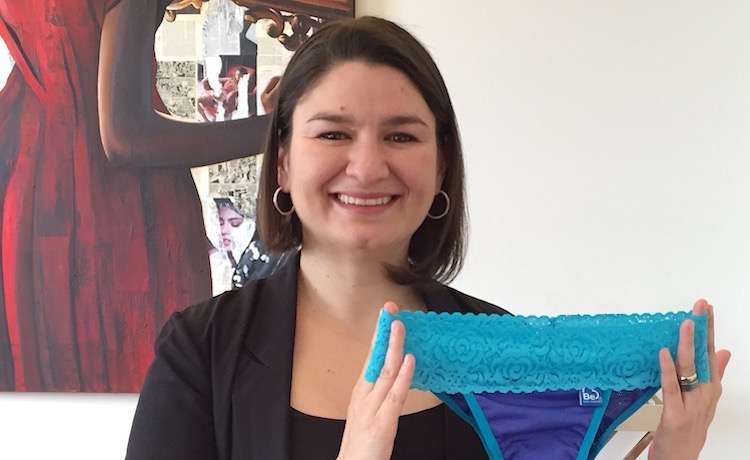She Had No Medical Degree or PhD But Just Won Nobel Prize for Medicine
This woman studied ancient Chinese texts which led to her discovery of the standard drug used to treat Malaria today, saving millions of lives.

Many girls in the Western world use their period as an excuse to sit out of gym class-but in some African countries a girl's monthly cycle forces her out of school altogether.
Diana Sierra was already empowering women in Africa and South America, working as an industrial engineer on innovative cookstoves and food processors that would make their lives better. But when she visited Uganda and found girls there dropping out of school, she trained her problem-solving prowess on the lack of feminine pads.
"Seeing girls lack the most basic supplies to manage their menstruation with dignity truly broke my heart," said Sierra, now based in Washington, D.C. "As a woman and as a designer, I felt that I had to use my skills do something to help."
She knew that users of the ideal product would have to contend with scarce resources, so her first prototype, a waterproof pad holder with a mesh lining made of mosquito netting and umbrella fabric, could be stuffed with any available absorbent material.
But that design only solved one of the problems. Girls often don't even own underwear - a necessary component for pads to work. So she migrated her pocket pad design into a high performance panty that combines comfort, fast indoor drying time and 100% leak protection.
The result is called the Be Girl PantyPad, which is hitting the commercial market in Kenya through local female distribution networks in honor of global Menstrual Hygiene Day- and at an accessibly low cost.
"It's a crazy passion for me," the Be Girl co-founder told the Good News Network at a breakfast meeting in DC last month.
"The fact that a blood stain is standing between millions of girls and their chance to obtain an education is absurd. " Sierra said. "Every girl deserves the chance to fulfill her greatest potential."
While designing the product she worked closely with African girls who told her they wanted something colorful, girly and beautiful. It was a poignant reminder that no matter someone's income level, people want beautiful things.
"It is our job as designers to serve this population with the same attention to aesthetics as we do with any other user segment."
SHARE the inspiring engineering story…
Be the first to comment